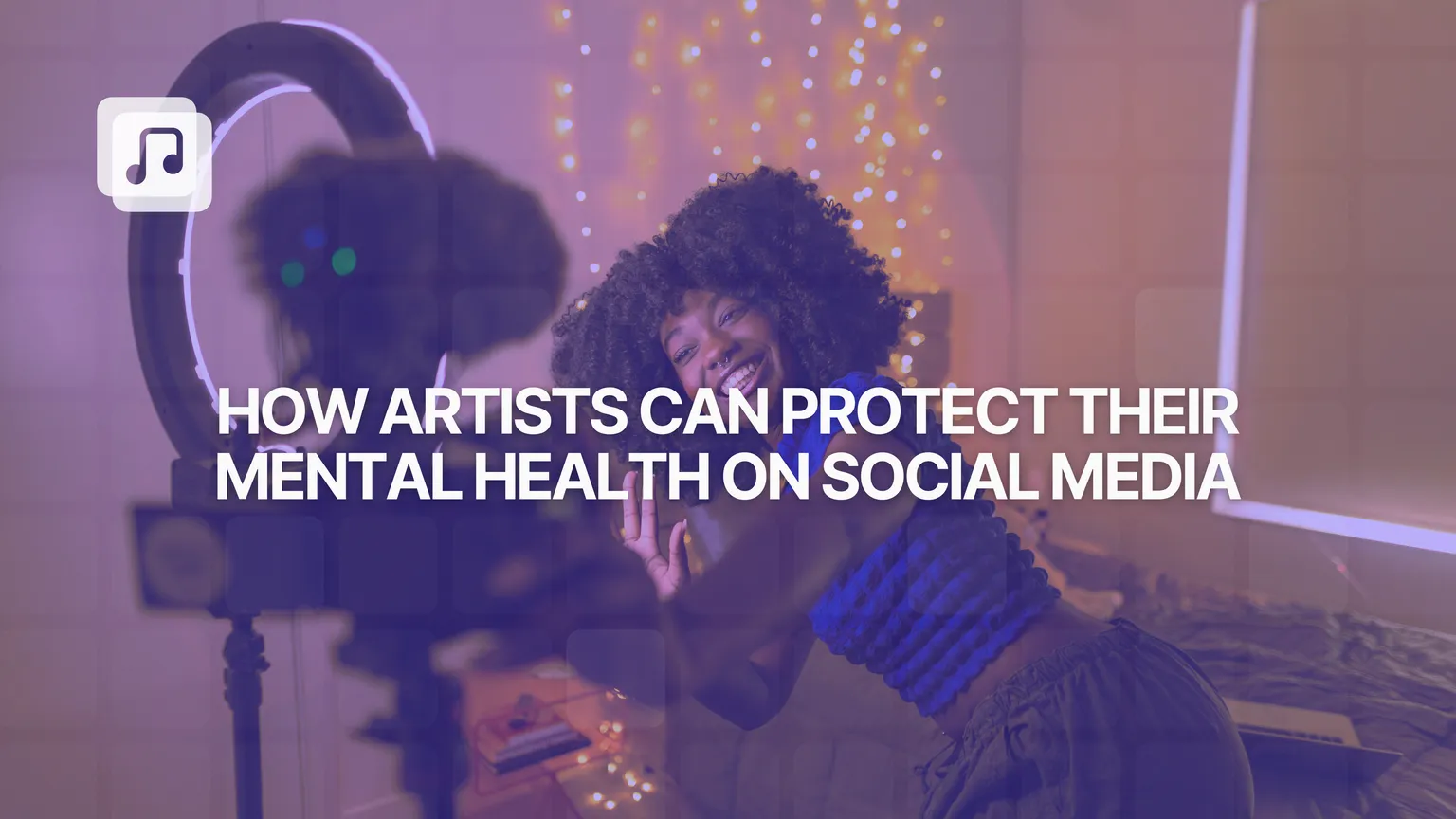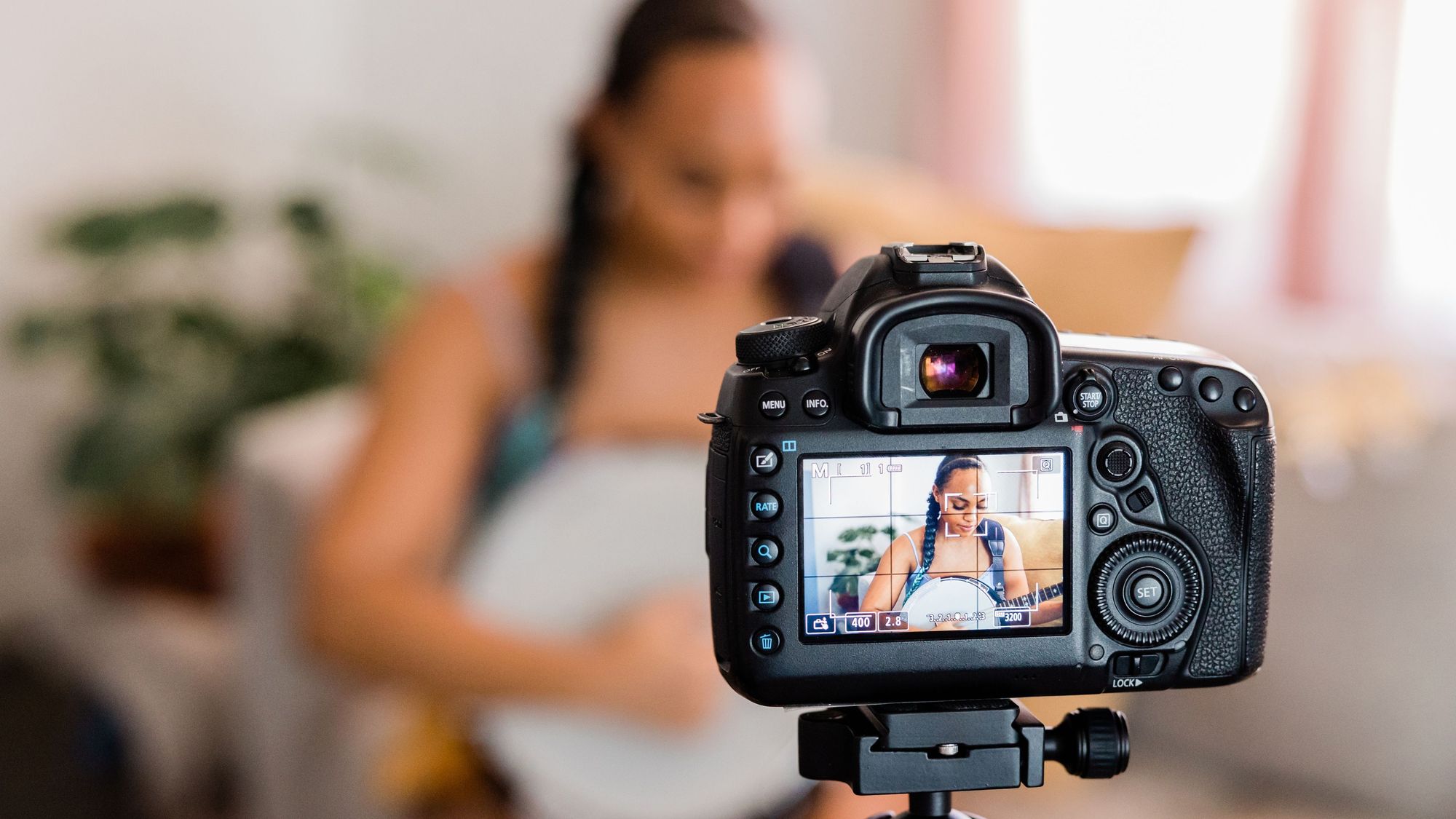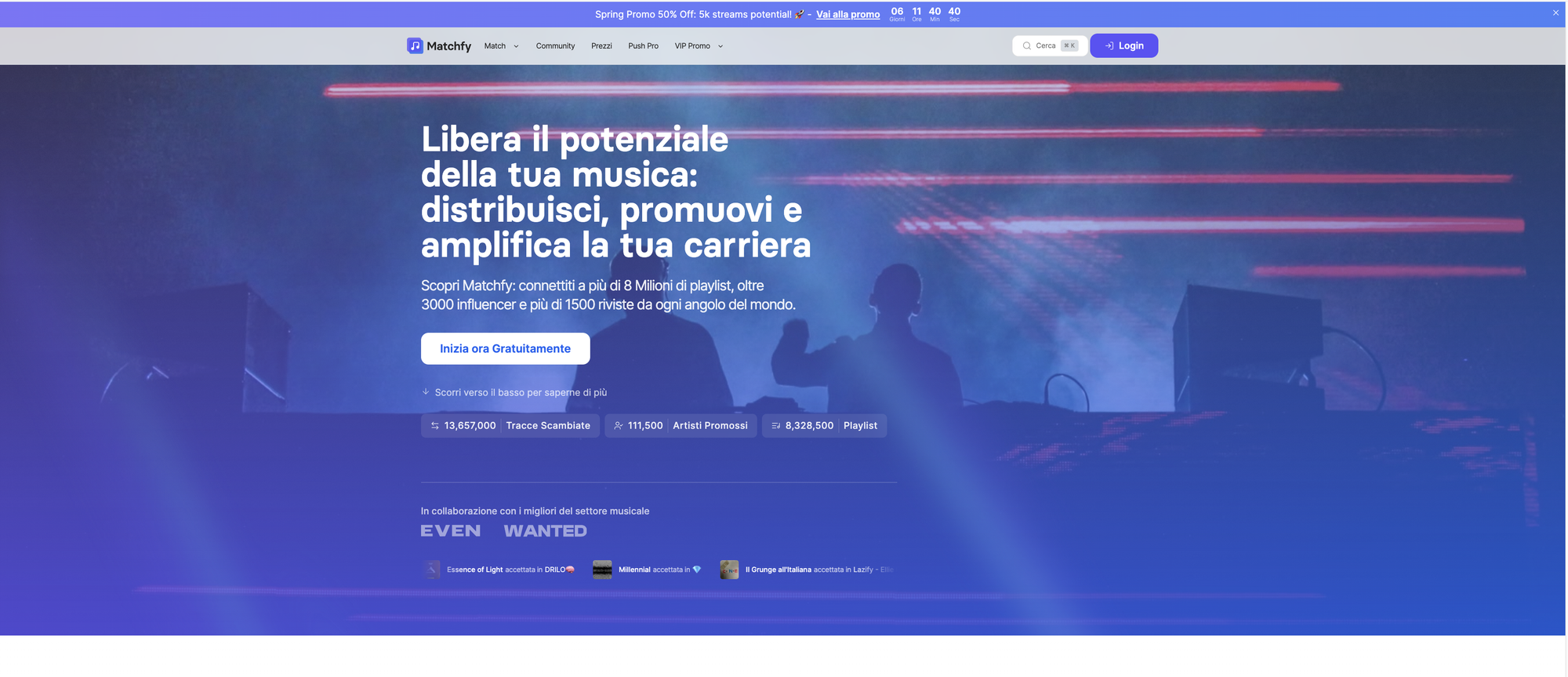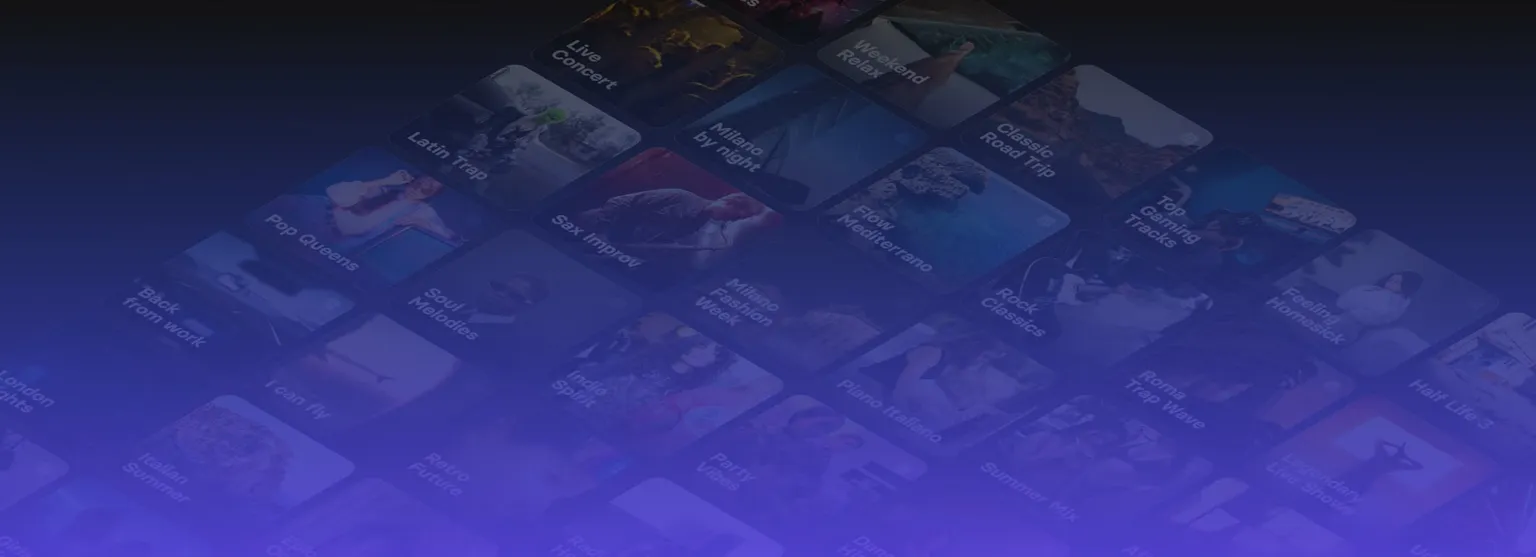
Being an artist in today’s world almost always means having some kind of presence on social media. Platforms like Instagram or TikTok can help you showcase your work, connect with fans and even open doors to collaborations and career opportunities. At the same time, the constant exposure, pressure to stay relevant, and endless comparisons with others can take a toll on your mental health.
The key is not to abandon social media entirely, but to find healthier ways of engaging with it so that it supports your creative journey rather than undermining it. Below, we’ll explore some common challenges artists face on social platforms, along with strategies you can use to protect your well-being while staying connected with your audience.
What we're going to talk about:
- The psychological challenges of social media for artists
- Posting with intention instead of chasing numbers
- Setting boundaries with social media
- Curating your digital space
- Rethinking metrics: beyond likes and follows
- Knowing when it’s time for a break
The psychological challenges of social media for artists
One of the biggest mental health struggles artists face online is the tendency to compare themselves to others. Social platforms are designed to highlight the most polished, curated versions of people’s lives and careers. When you’re constantly seeing other musicians, painters, writers, or creators sharing achievements, it can feel like you’re falling behind. This comparison can lead to discouragement, self-doubt and even the belief that your progress doesn’t measure up.
Closely linked to this is imposter syndrome: the nagging feeling that you don’t really deserve your success, or that you’re not as talented as people think. Even if you’ve accomplished great things, scrolling through posts from other artists can feed the fear that you’re a fraud waiting to be exposed.
Then there’s the issue of validation. Many artists find themselves checking likes, comments, and shares far too often. At first, these metrics might feel like a way to measure growth or engagement, but when your sense of self-worth starts to depend on them, they become emotionally draining. If a post doesn’t perform as well as expected, it’s easy to spiral into questioning your talent or value as an artist.
Posting with intention instead of chasing numbers
One of the best ways to shift your relationship with social media is to post with intention. Before hitting that “share” button, pause and ask yourself: Why am I posting this? Is it to genuinely share something you’re proud of, to express your creativity, or simply to keep up with an algorithm?
When you’re only posting because you feel pressure to stay visible or because you think it’s what will get the most likes, your content can start to feel hollow, both to you and to your audience. Over time, this pressure can drain your energy and make you resent the process of sharing.
Instead, focus on creating content that aligns with your values and your purpose as an artist. Maybe it’s showing behind-the-scenes clips of your creative process, sharing personal reflections on your journey, or highlighting the meaning behind your work. When your posts come from a place of authenticity, they’re more likely to resonate with your audience and, more importantly, they’ll feel rewarding to you regardless of how many likes they receive.
If you want to learn more about certain aspects of social platforms, and discover how to take advantage of them to boost your career, visit our blog to stay updated!
Setting boundaries with social media
Boundaries are essential for keeping your mental health intact when using social platforms. Here are a few simple but effective ways to protect your time and energy:
- Set time limits. Use tools on your phone to track and limit screen time, or designate certain hours of the day as “social media-free zones.” For example, you might decide not to check your feeds in the first hour after waking up or the last hour before going to bed.
- Mute or unfollow accounts that trigger negative feelings. If certain creators or posts consistently make you feel inadequate or anxious, don’t be afraid to mute, unfollow, or block. Protecting your mental space is more important than keeping up appearances.
- Create a sustainable posting schedule. You don’t need to post daily to stay relevant. Consistency matters, but consistency can also mean once or twice a week if that works better for you. Choose a rhythm that doesn’t leave you feeling drained.
By creating boundaries, you’re essentially reminding yourself that social media should serve you, not the other way around.
Curating your digital space
Think of your social media feeds as a gallery you curate. The content you consume has a huge impact on how you feel day to day, so it’s worth taking the time to refine what you see.
Start by paying attention to your emotions as you scroll. Do certain accounts leave you feeling inspired, educated, or uplifted? Or do they spark jealousy, stress, or frustration? Once you identify which is which, you can be intentional about who you follow and what kind of content you allow into your daily life.
Follow accounts that fuel your creativity, align with your values, or bring joy. These could be fellow artists you admire, educators who share useful insights, or even completely unrelated accounts that bring humor or lightness into your feed. On the flip side, feel free to mute or remove anything that doesn’t add value to your life, even if it’s suggested by the platform.
A well-curated feed can transform the way you experience social media, making it a space that supports your creativity instead of undermining it.

Rethinking metrics: beyond likes and follows
It’s easy to fall into the trap of measuring success by numbers. After all, platforms highlight likes, shares, and follower counts as if they’re the ultimate markers of achievement. But numbers rarely tell the whole story.
For artists, what matters most is often the depth of connection with your audience, not the size of it. A single heartfelt message from a fan saying your song got them through a hard time or that your painting made them feel understood can mean far more than a thousand likes. These are the moments that reflect the true value of your work.
Consider keeping a digital or physical folder of meaningful comments, emails, or messages you’ve received about your art. Whenever you’re discouraged by the numbers, revisit these reminders of the real impact you’re making.
And remember: you don’t have to manage this journey alone. Tools like Matchfy can help you grow your music career in a more authentic way, connecting you with real opportunities and audiences instead of just chasing vanity metrics.

Knowing when it’s time for a break
Sometimes, the healthiest thing you can do is step away from social media altogether for a while. If you notice that scrolling leaves you feeling more stressed than inspired, that’s a sign it may be time to unplug.
Taking a break doesn’t mean abandoning your platforms forever. Even small steps, like a weekend offline or a few days without posting, can reset your perspective. During this time, lean into other activities that bring you joy and fulfillment: go for a walk, spend time with loved ones, experiment with your art in private, or rediscover hobbies that don’t involve screens.
Breaks give your mind the space to recharge, and often, you’ll return to social media with a healthier mindset and renewed creativity.
Final thoughts
Social media is a powerful tool for artists, offering visibility and connection like never before. But it doesn’t come without risks to mental health. By understanding the psychological challenges, posting with intention, setting boundaries, curating your feeds, and recognizing when to step back, you can create a healthier relationship with these platforms.
Ultimately, your worth as an artist isn’t defined by algorithms or follower counts. It’s defined by your creativity, your authenticity, and the impact your work has on the people who encounter it. When you protect your mental health online, you not only preserve your well-being, you also create space for your art to grow and thrive in the most meaningful ways.

